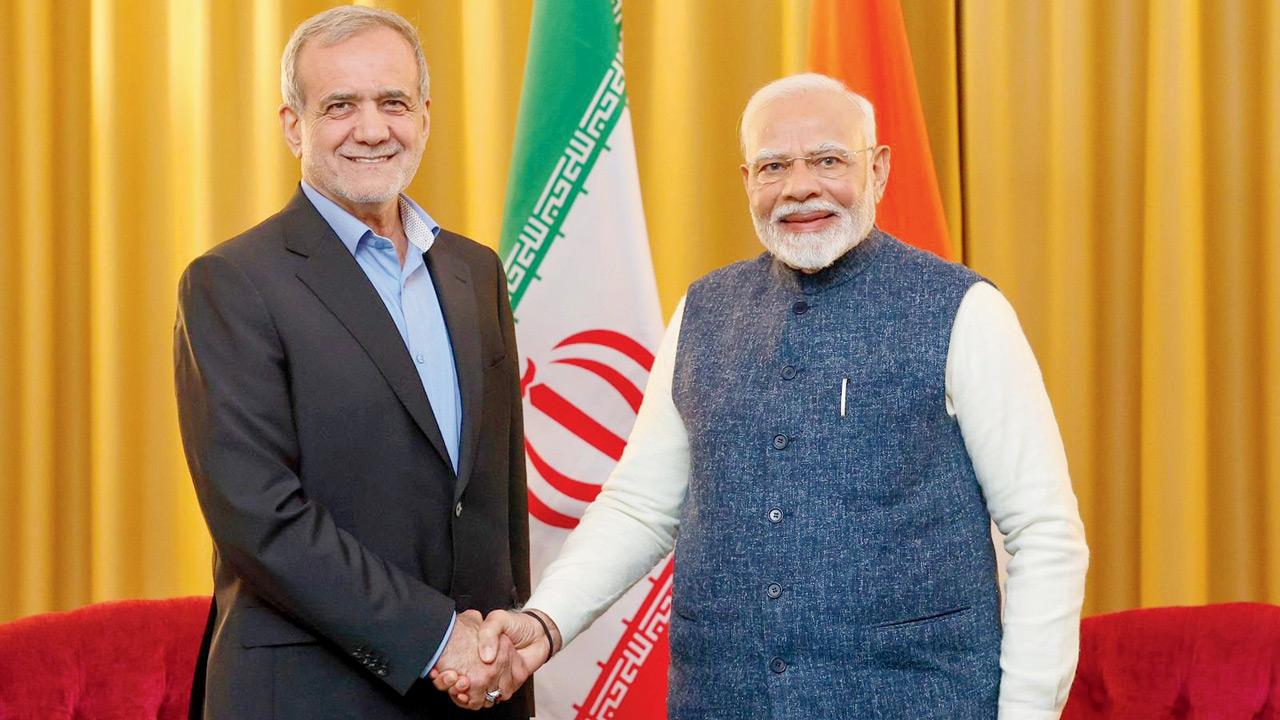The phone conversation between Modi and Pezeshkian came hours after the US bombed three major nuclear sites — Fordow, Natanz and Isfahan — in Iran, bringing itself into the Israel-Iran conflict

PM Narendra Modi (right) with Iranian President Masoud Pezeshkian. PIC/X@narendramodi
Prime Minister Narendra Modi on Sunday conveyed to Iranian President Masoud Pezeshkian India’s “deep concern” over Iran’s conflict with Israel and called for immediate de-escalation of the situation through “dialogue and diplomacy”. The phone conversation between Modi and Pezeshkian came hours after the US bombed three major nuclear sites — Fordow, Natanz and Isfahan — in Iran, bringing itself into the Israel-Iran conflict.
In a social media post, Modi said he expressed “deep concern” at the recent escalations and that “dialogue and diplomacy” are the way forward for early restoration of regional peace. “Reiterated our call for immediate de-escalation, dialogue and diplomacy as the way forward and for early restoration of regional peace, security and stability,” Modi said.
The US attack on the Iranian nuclear facilities triggered fears of a wider regional conflict, with many leading countries and blocs calling for restraint. Soon after American B-2 bombers struck the Iranian installations, US President Donald Trump said the Iranian nuclear facilities were “completely and totally obliterated”. Iranian Foreign Minister Abbas Araghchi said the US has committed a “grave violation” of the UN Charter, international law and the nuclear non-proliferation treaty by attacking Iran’s “peaceful nuclear installations”.
“The events this morning are outrageous and will have everlasting consequences. Each and every member of the UN must be alarmed over this extremely dangerous, lawless and criminal behaviour,” he said. Iran reserves all options to defend its sovereignty, Araghchi added. The 27-nation European Union urged all sides to step back and return to the negotiating table.
War impact on India’s energy
Blocking or disruption of traffic through the Strait of Hormuz will have significant global and regional impact including for India’s energy security, strategic affairs experts have said. Following the US bombing, Tehran has indicated that closing the Strait of Hormuz for shipping is one of the options on the table to pressure its adversaries. Nearly 30 per cent of global oil and a third of the world’s LNG (liquefied natural gas) passes through the Strait daily.
This story has been sourced from a third party syndicated feed, agencies. Mid-day accepts no responsibility or liability for its dependability, trustworthiness, reliability and data of the text. Mid-day management/mid-day.com reserves the sole right to alter, delete or remove (without notice) the content in its absolute discretion for any reason whatsoever
 Subscribe today by clicking the link and stay updated with the latest news!" Click here!
Subscribe today by clicking the link and stay updated with the latest news!" Click here!










